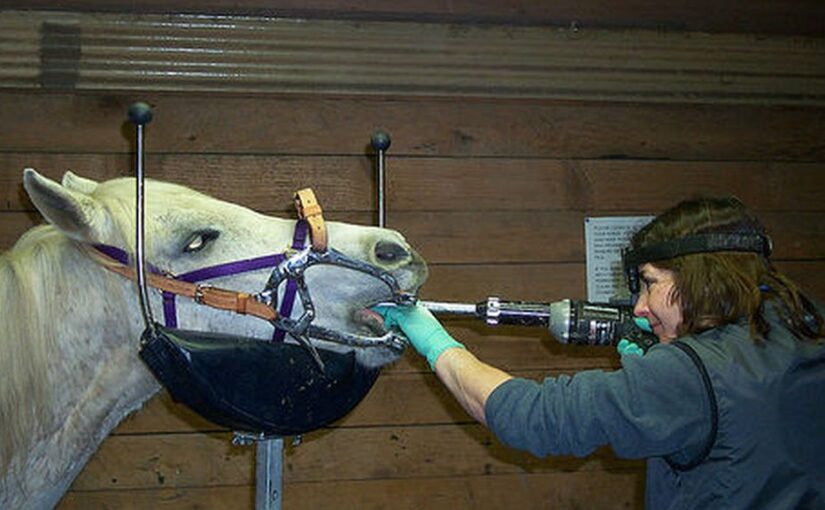Equine dentistry plays a crucial role in maintaining the overall health and well-being of horses. Proper dental care ensures optimal nutrition, comfortable chewing, and effective communication between horse and rider. In this comprehensive guide, we will explore the importance of equine dentistry, common dental issues, and the procedures involved in maintaining your horse’s dental health.
1. The Importance of Equine Dentistry
-
The Significance of Regular Dental Check-ups
Dental health is essential for the overall well-being of horses. Regular dental check-ups, conducted by a qualified veterinarian, are crucial in maintaining optimal oral health. These check-ups serve as preventive care measures, identifying potential issues before they become severe problems.
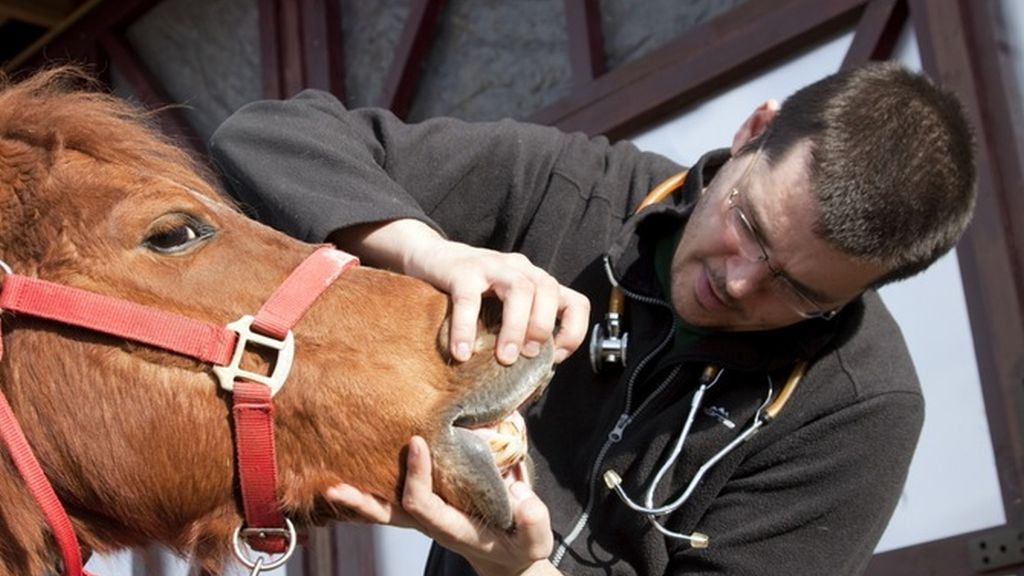
Horses’ teeth continually erupt throughout their lives, wearing down from the grinding motion during chewing. Dental irregularities can develop due to factors such as improper alignment, sharp enamel points, or the presence of hooks and ramps. Neglected dental issues can lead to discomfort, difficulty chewing, weight loss, and performance problems.
Regular dental examinations allow veterinarians to identify and address these problems in their early stages. The veterinarian will perform a comprehensive oral examination, including a thorough evaluation of the teeth, gums, and soft tissues. Based on the findings, appropriate dental procedures can be recommended to ensure the horse’s oral health is maintained.
-
Common Dental Issues in Horses
Horses can experience a range of dental issues that require professional intervention. Malocclusions, which refer to abnormalities in the alignment of the upper and lower teeth, are common problems in horses. This can cause uneven wear and result in sharp enamel points, hooks, and ramps.
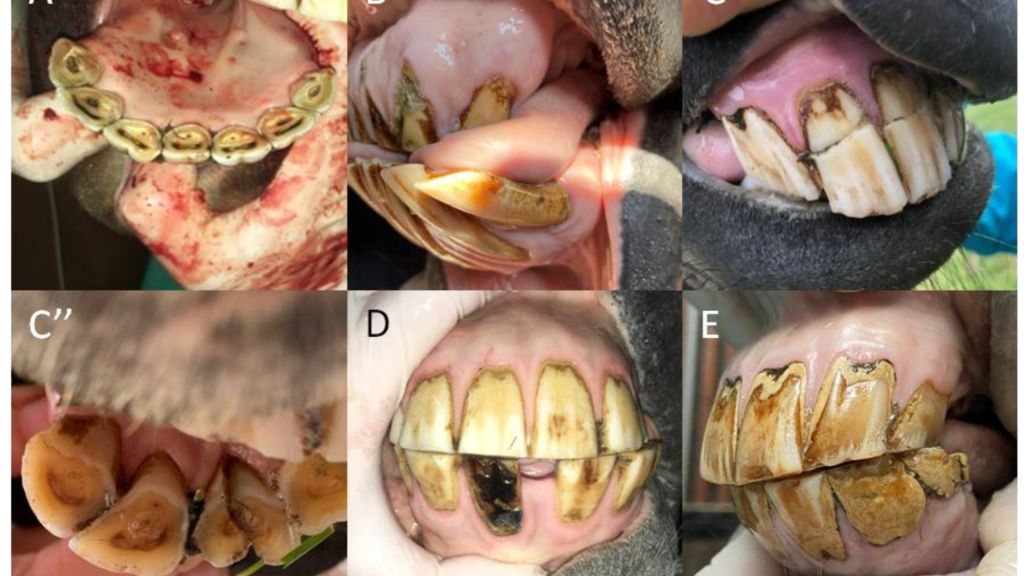
Sharp enamel points can lacerate the cheeks and tongue, causing pain and discomfort during eating. Hooks and ramps occur when certain teeth grow longer or wear unevenly, creating abnormal surfaces that can hinder proper chewing.
Periodontal disease is another dental issue that affects horses. It is caused by the accumulation of food particles, plaque, and tartar on the teeth, leading to inflammation and infection of the gums. If left untreated, periodontal disease can result in tooth loss and other systemic health problems.
Early detection and treatment of these dental issues are vital for the horse’s well-being. Regular dental check-ups and professional dental procedures, such as floating (smoothing the sharp enamel points) and tooth extraction, can address these problems effectively.
2. Equine Dental Procedures
-
Equine Dental Floatation
Dental floatation is a common procedure performed in equine dentistry to address dental irregularities. Floatation involves the use of specialized tools to file or smooth out sharp enamel points and correct other dental abnormalities.
There are two primary methods of dental floatation: power float and hand float. Power floatation involves the use of an electric or pneumatic-powered dental instrument to perform the procedure efficiently. This tool allows for precise control and quicker removal of sharp enamel points. Power floats often have adjustable speed settings and different attachments to address specific dental issues.
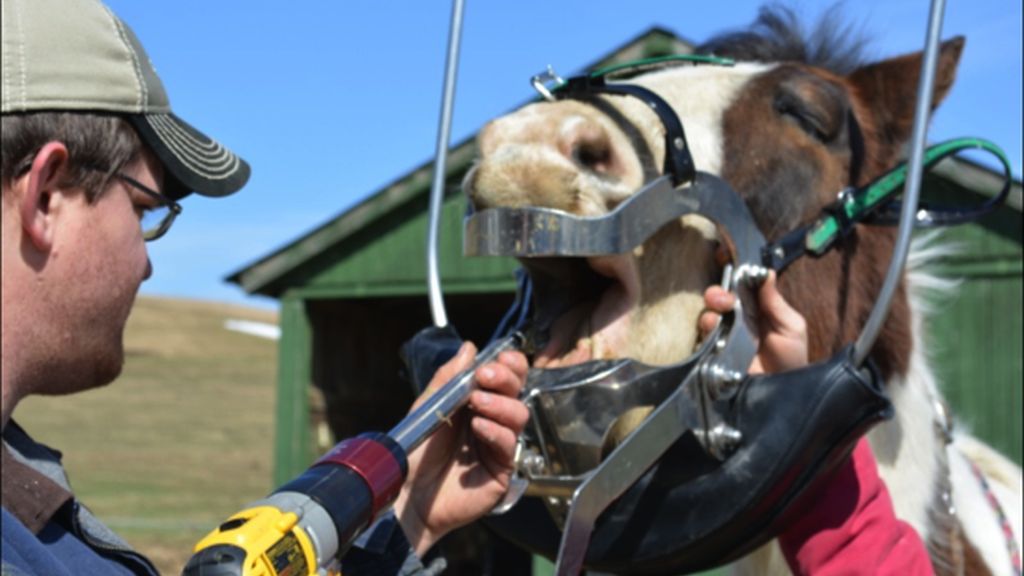
Hand floatation, on the other hand, employs manual instruments, such as rasps and files, to correct dental issues. This method requires skilled and experienced hands to ensure the proper filing of the teeth. Hand floating allows for a more tactile approach, giving the veterinarian the ability to feel the horse’s mouth and make adjustments accordingly.
The choice of floatation method depends on the individual horse’s needs and the veterinarian’s preference. Some horses may require power floatation due to severe dental irregularities, while others may be more suited to hand floatation. Both techniques aim to restore a proper occlusal surface, promoting comfortable chewing and preventing further dental problems.
Regular dental floatation is recommended as part of a horse’s routine dental care. The frequency of floatation varies depending on factors such as the horse’s age, dental history, and the presence of specific dental issues. Generally, adult horses may require dental floatation every six months to a year, while younger horses and those with more significant dental problems may need more frequent treatments.
-
Tooth Extraction in Equine Dentistry
In some cases, tooth extraction may be necessary to address specific dental issues in horses. Impacted teeth, which fail to erupt properly, can cause pain, discomfort, and infections. Similarly, retained deciduous teeth, commonly known as “baby teeth,” can cause abnormalities in the alignment of permanent teeth.
Tooth extraction is a dental surgical procedure that should only be performed by a qualified veterinarian. It requires careful planning, proper anesthesia, and surgical techniques to ensure the horse’s well-being. Sedation or general anesthesia is administered to ensure the horse remains calm and pain-free throughout the procedure.
The veterinarian begins by carefully assessing the tooth that requires extraction, evaluating its position and any associated complications. Using specialized dental instruments, the veterinarian will carefully remove the tooth while minimizing trauma to the surrounding tissues.
Post-operative care is essential after tooth extraction. The horse may be prescribed pain medication and antibiotics to manage pain and prevent infection. Soft or soaked feed may be recommended for a few days to allow the extraction site to heal properly.
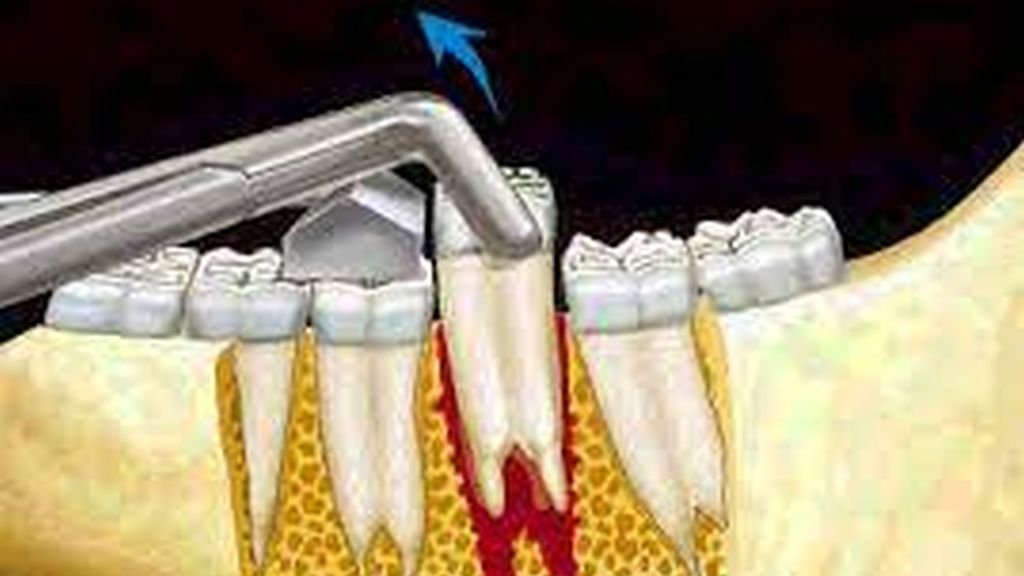
It is crucial to follow the veterinarian’s instructions regarding post-operative care and scheduling follow-up appointments. Regular check-ups ensure proper healing and help monitor any potential complications.
In some cases, tooth extraction may be a part of a more extensive dental surgery, such as correcting severe malocclusions or treating advanced dental diseases. These procedures require a higher level of expertise and may involve more extensive planning and aftercare.
Equine dental procedures such as dental floatation and tooth extraction are essential for maintaining a horse’s oral health. Dental floatation helps correct dental irregularities, ensuring comfortable chewing and preventing further complications. Tooth extraction becomes necessary when dealing with impacted teeth or retained deciduous teeth. These procedures should always be performed by a qualified veterinarian to ensure the horse’s safety and well-being. Regular dental care and preventive measures contribute to the overall health and happiness of horses.
